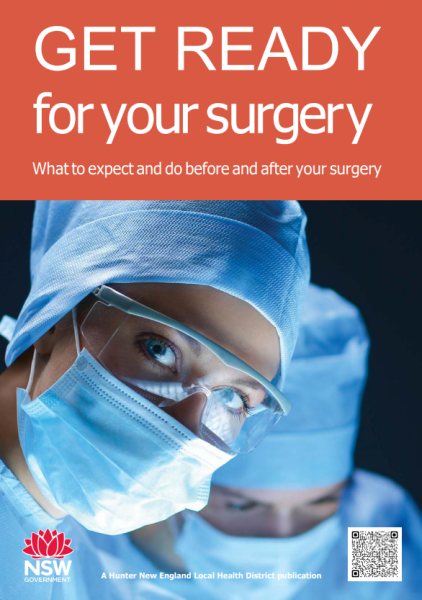Patient identification
Staff will put an identity band on you when you come into hospital. They will use this band to check that they are providing care to the correct person.
Check that the information on your band is correct. If not, tell the staff as soon as possible as they need to be sure that they are giving you the right treatment, such as medications.
Get ready for your surgery
The Get ready for your surgery booklet aims to help you plan for your hospital stay ahead of your scheduled surgery.
It provides information on getting ready for your surgery, what to do and expect before and after your surgery. It also includes things you can do to improve your health in preparation for your surgery.
You can easily print this booklet (PDF 2.32MB) at home or contact your local hospital for a copy of this booklet.

Clinical handover
Clinical handovers are when the professional responsibility and accountability for some or all aspects of your care as a patient is transferred to another person or professional group.
Clinical handovers usually happen at your bedside in the hospital or health facility. You or your family and/or carer are a very important part of the clinical handover conversation.
You can expect to be involved in this conversation. You are encouraged to ask questions or voice your concerns about anything you may be worried about.
Learn more about patient safety.
Preventing blood clots
When you are in hospital, the doctor will check if you are at risk of getting a blood clot.
Your doctor may give you medicine or special stockings to help lower your risk for blood clots.
Always ask your doctor or nurse if you have any questions.
Learn more about preventing blood clots (PDF 341KB)
REACH - Patient and family activated escalation
REACH (Recognise, Engage, Act, Call, Help) is an easy-to-use system to raise concerns if you notice a worrying change in your condition or that of your loved one.
We encourage you to first raise your concerns directly with your nurse or doctor.
If you remain worried after speaking with your nurse or doctor, REACH provides you with more options to escalate your concerns further.
Learn more about REACH.
